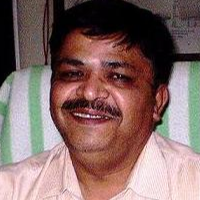
S. K. Agarwal
Work place: YMCA Univ. of Science and Technology, DTU /Electronics Engg, Electrical Engg, Faridabad, Delhi, India
E-mail: sa_3264@yahoo.co.in
Website:
Research Interests: Engineering
Biography
S. K. Agarwal was born in 1961. He is currently Professor in Department of Electronics Engineering; YMCA University of Science & Technology, Faridabad, and Haryana (India) .He did his B.Tech from REC Calicut, Kerela (India) & M.E. (Controls & Instrumentation) from Delhi Technological University Delhi (India) &Ph.D from JamiaMiliaIslamia University Delhi (India).
Prof. S. K. Agarwal has many publications in National/International Journals & presented papers in International conferences. Prof. Agarwal’s main area of interest is Power System & Controls.
Author Articles
Advanced Adaptive Particle Swarm Optimization based SVC Controller for Power System Stability
By Poonam Singhal S. K. Agarwal Narendra Kumar
DOI: https://doi.org/10.5815/ijisa.2015.01.10, Pub. Date: 8 Dec. 2014
The interconnected systems is continually increasing in size and extending over whole geographical regions, it is becoming increasingly more difficult to maintain synchronism between various parts of the power system. This paper work presents an advanced adaptive Particle swarm optimization technique to optimize the SVC controller parameters for enhancement of the steady state stability & overcoming the premature convergence & stagnation problems as in basic PSO algorithm & Particle swarm optimization with shrinkage factor & inertia weight approach (PSO-SFIWA). In this paper SMIB system along with PID damped SVC controller is considered for study. The generator speed deviation is used as an auxiliary signal to SVC, to generate the desired damping. This controller improves the dynamic performance of power system by reducing the steady-state error. The controller parameters are optimized using basic PSO, PSO-SFIWA & Advanced Adaptive PSO. Computational results show that Advanced Adaptive based SVC controller is able to find better quality solution as compare to conventional PSO & PSO-SFIWA Techniques.
[...] Read more.Other Articles
Subscribe to receive issue release notifications and newsletters from MECS Press journals